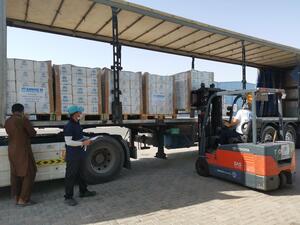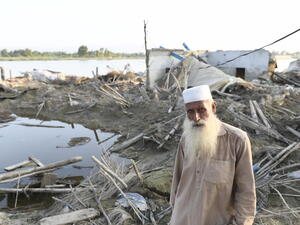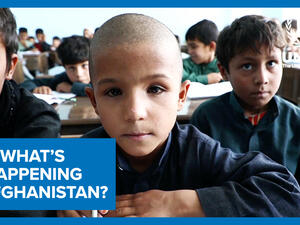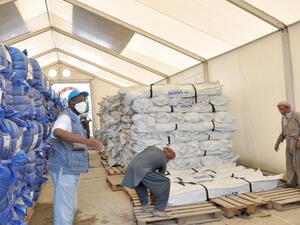Afghan returns from Pakistan exceeding expectations; UNHCR appeals for additional $10m
Afghan returns from Pakistan exceeding expectations; UNHCR appeals for additional $10m
The pace of repatriation to Afghanistan from Pakistan is rapidly outstripping UNHCR's ability to identify additional resources to support returning Afghans. With the generous support of donors, UNHCR has been able to assist more than 300,000 Afghans to return to their homeland this year. But, funds will soon be exhausted and we are making an urgent request for an additional $10 million over the additional $15 million requested in April 2007. This will enable us to support the return and reintegration of a revised total of 400,000 Afghans this year. The new revised budget for the entire Afghanistan Operation is $108,373,526.
Returnees receive a transport and reintegration grant, medical check-ups and children receive polio and measles vaccinations. They also receive mine awareness training at a transit centre close to Jalalabad in Afghanistan.
Since the launch of the repatriation operation in 2002, over five million Afghans have returned to Afghanistan - 3.2 million from Pakistan and 1.8 million from Iran. Last year, the voluntary repatriation programme recorded the lowest level of returns (139,000) since 2002. From Iran, some 4,200 refugees have returned this year. The deteriorating security situation and economic and social conditions inside Afghanistan are contributing to the decline. However, half of the remaining three million registered Afghans in the region were born outside their homeland. Most returnees since 2002 have been outside their country for relatively short periods.
Currently, the main reasons refugees are returning are the conditions in host countries and the policies of the host governments. UNHCR continues to monitor developments in both the host countries and the country of origin to determine if repatriation is voluntary and gradual, principles enshrined in the Tripartite Agreements that set the legal framework for voluntary repatriation.
In the longer term, the key to continued and successful return to Afghanistan will lie in improving security, raising living standards, and enlarging employment opportunities through reconstruction and development programmes in Afghanistan.









